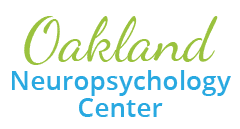School can be a very exciting and stimulating place for many children and adolescents. For a number of others, however, it is a place where they feel stressed, inefficient, confused, and unfortunately, defeated at times. As parents, we want to help them but often end up feeling frustrated as everything we try just doesn’t seem to work or ‘doesn’t stick.’ You follow the teacher’s suggestions and while everyone is working hard, the progress is so slow. Something seems to be missing. Many parents contact us sharing these issues and feeling this way: rest assured, you are not alone and we can help.
Testing can be very helpful in cases such as these. It is often a good place to start. It provides a comprehensive overview of learning strengths and weaknesses, which help explain why someone is struggling and most importantly, how to help them using their own personal strengths. Testing looks into abilities such as attention and concentration, memory, processing, reasoning and problem solving, as well as academic skills. For children or adolescents with social difficulties, there are also measures that are sensitive to one’s ability to process information that is crucial to develop efficient peer relationships. As part of the evaluation, we also take into account and directly measure parent and teacher perceptions of a child’s abilities; how they function in different learning and social environments is a very important piece of the puzzle. In some cases, Dr. Beaulieu will directly observe children while they are in class or during recess, to understand what their particular struggles and needs are.
Testing can help determine if there are one or more conditions that may be interfering with learning or social skills. For example, it is not uncommon for individuals with learning disabilities to also struggle with attentional issues, such as ADHD. They may be struggling emotionally, and display features or problems that are consistent with an anxiety disorder or with depression. Depending on your child’s profile, a specific and individualized intervention plan is put forth that highlights strengths (ex. strong verbal memory skills, attentive to details, great interpersonal skills, etc.) which can then be used to address weaknesses in other areas. This information is presented in a helpful and accessible fashion for parents, teachers, pediatricians, and therapists. The goal, ultimately, is to help your child feel confident and successful in school so that learning becomes an activity they enjoy as much as their peers.
Oakland Neuropsychology Center
Office: (248) 644-9466
4190 Telegraph Rd, Suite 2700
Bloomfield Hills, MI 48302



